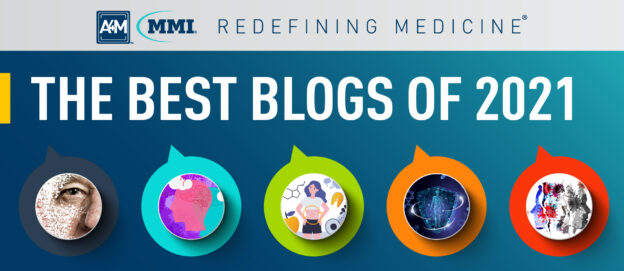Yet another year is coming to a close, marking another groundbreaking year in medicine. 2021 continued to test the healthcare system and its dedicated professionals with COVID-19 surges and viral variants, rising cases of chronic disease, and nationwide health crises demanding immediate attention.
In line with the A4M mission to disseminate the latest knowledge in modern medicine, we strive to keep clinicians up to date and well-equipped to tackle any clinical challenge with our weekly blog articles. From the role of hormonal health in immunocompetence to the latest successes in Alzheimer’s disease therapeutics, topics featured on the A4M blog highlight essential developments in the industry. To wrap up the year, we compiled a list of our readers’ favorite blogs from 2021.
Top Blogs of 2021
Healthy Aging Myths: Physical Deterioration and Impairment Are Inevitable
As the aging population grows alongside innovations in longevity science, it is important for healthcare professionals to combat the many medical myths surrounding the biological aging process, which may detrimentally affect patient healthspan and well-being. Although it is a belief held by many patients regardless of age, the inevitability of physical deterioration and functional impairment remains a myth. With the help of strategic lifestyle interventions – including adequate physical activity, healthy dietary habits, and a positive outlook on the aging process – older individuals can help slow down the body’s natural decline and promote optimal function as they age.
Emerging Alzheimer’s Disease Therapeutic Slows Decline
Accounting for up to 80% of all dementia cases, Alzheimer’s disease (AD) currently affects over 50 million people across the globe. With 10 million new cases of dementia diagnosed each year, this number is expected to increase; experts forecast there will be nearly 152 million dementia patients by the year 2050. Neurodegenerative disorders carry significant caregiving and economic burdens that necessitate innovations in therapeutics. A novel drug candidate from Eli Lilly – donanemab – shows promising results in slowing cognitive decline per emerging evidence. By targeting a modified form of the beta-amyloid known as N3pG, the investigated agent appears to slow down decline in patients with early symptoms of Alzheimer’s disease.
The Connection Between Hormones and Eating Habits
While there are over 200 hormones in the body – estrogen, testosterone, cortisol, insulin, leptin, and thyroid hormones are the most commonly known and closely linked to metabolism, fertility, mood, and other vital functions. Changes in hormone production or interferences in signaling pathways contribute to the development of hormonal imbalances, which can lead to diabetes, weight gain, infertility, and other health concerns if not managed appropriately. There are many possible causes of hormonal imbalances, from medication to tumors and underlying health conditions. Diet-related hormonal fluctuations, including those spurred by eating disorders, are becoming increasingly prevalent and underscore the connection between the endocrine system and eating patterns.
The Role of Hormones in Immunocompetence
The growing importance and benefits of hormonal health on autoimmunity have garnered more attention from the scientific community in recent years, especially as the focus shifts toward boosting immunocompetence in the global population. Current research points to significant differences in immune function based on sex hormones testosterone and estrogen. Results from experimental studies have shown that testosterone can have a medium-sized immunosuppressive effect on immune function, while the impact of estrogen can vary depending on the immune marker in question. Such differences in immune responses have contributed to notable health- and life-span disparities between sexes, yet the role of hormones in immune system aging remains to be understood.
The Lasting Effects of the COVID-19 Pandemic: Bracing for the “Mental Health Tsunami”
The COVID-19 pandemic has taken a tremendous toll on the global healthcare system and the physical well-being of millions across the world. Yet further still, it has contributed to the festering of a mental health epidemic that will long outlast the virus. An array of additional risk factors compound these mental health challenges, ranging from unemployment and underemployment to increasing healthcare costs, childcare concerns, and rates of chronic disease. The immense psychological burden has had acute effects on public health, leading experts to forecast an impending “mental health tsunami” – one of the biggest post-pandemic issues facing the population in 2022 and the years to come.
Stay tuned to the A4M blog for the latest in preventive, functional, and integrative medicine in the new year!

